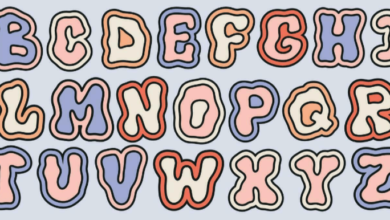Unlock Study Success with Flashcards

For many years, flashcards have been a popular teaching tool for students of all ages. They offer a simple yet effective way to retain information, improve focus, and master even the most complex subjects. By leveraging active recall and spaced repetition, flashcards make studying more efficient and engaging. In this article, we’ll explore the benefits of flashcards, how to create and use them effectively, and strategies to accelerate your learning process.
Why Flashcards Are Essential for Learning
Flashcards rely on two powerful cognitive techniques: active recall and spaced repetition. Active recall strengthens memory by requiring you to retrieve information, while spaced repetition schedules reviews to reinforce knowledge over time. These techniques make flashcards an excellent tool for achieving long-term retention and improved academic performance.
Benefits of Flashcards
Flashcards provide numerous advantages over other study methods. Here’s why they’re a game-changer:
- Interactive Learning: They actively engage your brain, making studying more effective than passive reading.
- Customizable: You can tailor flashcards to your specific learning needs.
- Portable: Whether digital or physical, flashcards are easy to carry, allowing for on-the-go study sessions.
- Focused Practice: They help identify weak areas and target them for improvement.
How to Create High-Quality Flashcards
The effectiveness of your flashcards depends on how well they’re designed. Follow these tips to create impactful flashcards:
- Focus on One Concept per Card: Keep each card simple and concise to avoid confusion.
- Use Clear Language: Write in straightforward terms to enhance understanding.
- Add Visuals: Incorporate images, diagrams, or color coding to support visual memory.
- Frame Questions: Pose a question on one side and provide the answer on the other to promote active recall.
- Provide Context: Include real-life examples to deepen comprehension.
See also: How to Use a Gmail Proxy for Enhanced Privacy and Security (With FAQs)
Strategies for Using Flashcards Effectively
To maximize their impact, use these proven strategies during your study sessions:
Set a Consistent Review Schedule
Regular practice is crucial for reinforcing knowledge. Set aside particular periods of time every day to go over your flashcards.
Practice Both Directions
Quiz yourself by recalling answers from questions and vice versa to strengthen your understanding.
Shuffle Frequently
Avoid memorizing the order of your cards by mixing them regularly.
Focus on Challenging Cards
Prioritize cards you find difficult to ensure you strengthen weaker areas.
Advanced Flashcard Techniques
Once you’ve mastered the basics, enhance your learning with these advanced techniques:
The Leitner System
Organize flashcards into different levels based on how well you know the content. Review cards in lower levels more frequently while gradually increasing the interval for cards in higher levels.
Gamification
Make studying more engaging by turning it into a game. Set goals, track your progress, and reward yourself for milestones.
Mnemonics and Visual Memory Aids
Use memory aids like acronyms, rhymes, or vivid imagery to help recall difficult concepts.
Peer Collaboration
Study with friends or classmates to share flashcards and gain new perspectives on challenging topics.
Transforming Notes into Flashcards
For learners who take extensive notes, converting them into flashcards can streamline the study process. If you’ve ever wondered, “How do I turn my notes into flashcards?” here’s a step-by-step guide:
- Identify Key Points: Highlight essential concepts, definitions, and formulas from your notes.
- Condense Information: Summarize the key points into question-and-answer pairs.
- Add Visuals and Examples: Where applicable, include diagrams or real-world scenarios for better understanding.
- Organize by Topic: Group flashcards into subject-specific decks for easier navigation.
- Digitize Your Flashcards: Use apps like Anki or Quizlet to create digital versions for easy access and automated review schedules.
Flashcards for Various Subjects
Flashcards are versatile and can be tailored to suit any subject. Here’s how they can be used effectively across disciplines:
- Languages: Memorize vocabulary, grammar rules, and pronunciation.
- Science and Math: Simplify formulas, equations, and technical concepts.
- History: Retain important dates, events, and historical figures.
- Test Prep: Break down standardized exam content into manageable flashcard sets for focused review.
Digital vs. Physical Flashcards
Both digital and physical flashcards have their own benefits. Here’s a quick comparison:
Digital Flashcards
- Accessible on mobile devices, allowing you to study anywhere.
- Include features like spaced repetition, multimedia integration, and progress tracking.
- Easy to share and collaborate on with classmates or study groups.
Physical Flashcards
- Provide a tactile learning experience, which can enhance memory for some learners.
- Simple to customize with handwritten notes or sketches.
- Don’t require an internet connection or electronic devices.
Tracking Progress and Staying Motivated
To ensure steady improvement, track your progress and keep your motivation high:
- Set Achievable Goals: Break down your study sessions into small, manageable tasks, such as reviewing 30 flashcards daily.
- Use Analytics Tools: Apps like Anki and Quizlet provide data on retention rates and highlight weak areas.
- Celebrate Milestones: Reward yourself when you hit specific study goals to maintain enthusiasm.
Avoiding Common Flashcard Mistakes
To get the most out of flashcards, avoid these common pitfalls:
- Overloading Cards: Keep each card focused on a single idea to prevent overwhelm.
- Skipping Difficult Cards: Spend extra time on challenging concepts instead of avoiding them.
- Inconsistent Practice: Regular reviews are critical for long-term retention.
- Relying Only on Flashcards: Complement flashcards with other study techniques, such as practice tests and discussions.
Integrating Flashcards into Daily Life
Flashcards can seamlessly fit into your daily routine, making studying more manageable:
- Review During Commutes: Use digital flashcards on your phone to make the most of your travel time.
- Incorporate Study Breaks: Review a few cards during short breaks to keep material fresh in your mind.
- Bedtime Reviews: A quick session before bed can help consolidate learning through sleep.
Conclusion
Flashcards are an invaluable tool for accelerating learning and mastering study habits. By using active recall, spaced repetition, and advanced strategies like the Leitner system, you can enhance your memory and improve your academic performance. Whether you’re transforming notes into flashcards, preparing for a big exam, or simply reinforcing your knowledge, flashcards offer a flexible and effective solution. Start incorporating them into your study routine today and experience the transformative impact on your learning journey!






